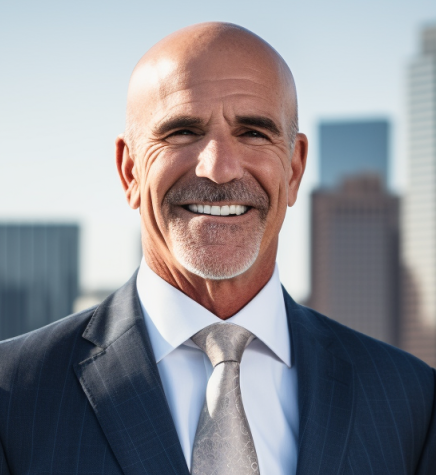Understanding Reverse Mortgages in Florida
Are you at that stage where retirement is either a comfy reality or just around the corner? Well, you might have heard a thing or two about reverse mortgages. They’re like a financial back-flip that can give you a stream of income using your home’s equity. But before you jump in, let’s break it down in plain English so you can decide if it’s right for you.
What’s a Reverse Mortgage?
A reverse mortgage is a loan that lets homeowners aged 62 and older convert part of their home equity into cash. Here’s the kicker: you don’t have to pay back the money until you sell the home, move out, or the last surviving borrower dies.
The Florida Scene
In the Sunshine State, reverse mortgages are quite the hit, especially with our golden-agers who want to stay in their homes while getting extra cash.
Table 1: Reverse Mortgage 101
| Term | Definition |
|---|---|
| Home Equity | The chunk of your home you actually own, value-wise. |
| Lender | The bank or financial institution lending you the cash. |
| Borrower | That’s you, the homeowner, taking out the reverse mortgage. |
| HECM | Stands for Home Equity Conversion Mortgage, the most common reverse mortgage type. |
How Does It Work?
Eligibility
To qualify, you have to:
- Be 62 or older (the older, the better for more bucks).
- Own your home outright or have a small mortgage left.
- Live in the home as your primary residence.
- Have the means to keep up with property taxes, insurance, and maintenance.
Process
Here’s what to expect:
- Counseling: First, you’ll discuss with a HUD-approved counselor. They’ll make sure you’ve got the lowdown on what you’re signing up for.
- Application: You’ll apply with a lender who’ll check out your credentials, like age, home value, and equity.
- Payment: You get to choose how you want the money – lump sum, monthly checks, or a line of credit.
- Repayment: No need to pay anything back until you sell or move out. But if you decide to stay put, you’ll just need to keep the home in good order and pay the ongoing property costs.
Pros and Cons
Like anything in life, there are ups and downs to reverse mortgages. Let’s take a look:
Benefits
- Stay in Your Home: Keep living in your home while getting extra cash.
- Flexible Payment Options: Choose how you get your money.
- Non-Recourse Loan: You won’t owe more than your home’s value when the loan’s due.
Drawbacks
- Fees and Interest: These loans aren’t free; there’s interest and fees to consider.
- Decrease in Equity: Your kids might get less inheritance since you’re using up home equity.
- Insurance and Taxes: You’ve still got to pay insurance and property taxes.
Is It Right for You?
So, should you do the reverse mortgage tango? It depends on your situation. Are you planning to live in your home for the long haul? Do you have a plan for keeping up with the costs? If you’re nodding yes, it could be a great move. But if you’re on the fence, maybe give it some more thought and chat with a financial advisor.
A reverse mortgage can be a savvy move for some Florida seniors looking for financial breathing room. It’s all about understanding the ins and outs and making a choice that fits your retirement needs. Just remember, take your time, do your homework and consult professionals.
The Fine Print of Reverse Mortgages
Now, we’ve chatted about the basics, but let’s dig a bit deeper into the fine print. It’s the part that most folks gloss over, but hey, that’s where the devil’s in the details, right?
Interest Rates and Fees
First up, interest rates which can eat away at your equity. Most reverse mortgages have variable rates, linked to a financial index and will change with the market. And fees? There are a few – closing costs, insurance premiums, and service fees. They can be rolled into the loan, but they’ll grow over time.
The Equity Thing
Now, equity. Think of your home equity like a juicy orange. A reverse mortgage squeezes out cash, but leaves you with a thinner slice. The more juice you squeeze now (cash you get), the less there’ll be later (equity for heirs).
Moving Out
What if you need to move out for, say, health reasons? Well, that can speed up repayment. If you, or the last remaining borrower, move from the home for more than a year, the loan’s due.
Table 2: The Cost Breakdown
| Item | Typical Cost |
|---|---|
| Interest Rate | Variable, based on index |
| Closing Costs | 2%-4% of home value |
| Insurance Premium | 2% upfront, 0.5% annually |
| Service Fees | $25-$35 monthly |
Consumer Safeguards
Thankfully in this great State it’s not all wild west in the world of reverse mortgages. There are some consumer protections in place.
Counseling
HUD-approved counseling is a must-do. It’s like the prep course before the final exam. They’ll walk you through the risks and benefits, making sure you know what you’re signing up for.
Non-Borrowing Spouses
If you’re married and your better half isn’t borrowing, they can still live in the home after you pass away, thanks to recent rules. But they have to keep up with the taxes and insurance, or else the lender can call the loan due.
Florida’s Homestead Exemption
Good news, Florida homeowners! Your homestead exemption doesn’t get affected by a reverse mortgage. That means you can still reduce your home’s taxable value and save some bucks on property taxes.
Considering Your Options
Before diving into a reverse mortgage, think about your other options. Could downsizing or a home equity line of credit work better for you? What about state and local programs for seniors? Weigh these against your need for cash and the desire to stay put.
Tapping Into Your Home’s Value: Is It for Everyone?
Picture this: you’re sitting on your porch, the Florida sun is setting, and you’re thinking about tapping into your home’s value for a bit more financial freedom. A reverse mortgage can seem like a sweet deal, but it’s not a one-size-fits-all kind of thing. It’s crucial to consider whether it’s the right fit for your lifestyle and financial goals.
Understanding the Long-Term Commitment
A reverse mortgage isn’t just a financial product; it’s a long-term commitment. You’re basically deciding on the future of your home. So, you’ve got to ask yourself some tough questions. How attached are you to leaving your home as an inheritance? Are you ready to maintain your home and keep up with the associated costs? Remember, failing to meet these requirements can mean waving goodbye to your home.
The Impact on Government Benefits
Now, if you’re counting on government programs like Medicaid or Supplemental Security Income (SSI), you’ll need to consider how getting a reverse mortgage could affect these benefits. The cash you get could mess with your eligibility. But, don’t sweat it too much – usually, if you spend that money right away, typically within the same month, it might not impact your benefits. Just be sure to get the lowdown on this with a financial advisor.
Table 3: Reverse Mortgage and Government Benefits
| Benefit Type | Impact | Details |
|---|---|---|
| Medicaid | Potential Impact | Lump-sum payments may affect eligibility |
| SSI | Potential Impact | Funds spent within the same month may not count as an asset |
| Medicare | No Impact | Generally not affected by a reverse mortgage |
The Exit Strategy
Alright, so let’s say you’ve enjoyed the reverse mortgage ride, but now it’s time to call it quits – maybe you want to move to a condo or live with family. If you sell the home, the money from the sale goes to pay off the reverse mortgage. If there’s any cash left, it’s yours to keep. But if the sale doesn’t cover the full amount, that’s where the non-recourse feature of reverse mortgages kicks in, and you won’t have to pay the difference.
The Road Less Traveled: Alternatives to Reverse Mortgages
Before you jump on the reverse mortgage bandwagon, have a look at some alternatives. Maybe a home equity loan or a line of credit could do the trick without giving up ownership. Or how about downsizing to a more manageable pad? These options could provide the financial boost you’re looking for with a different set of strings attached.
Wrapping It Up: A Sunny Financial Future?
As we come to the end of our journey exploring reverse mortgages in the land of endless summer, let’s reflect on a few key points to keep your retirement as bright as the Florida sun.
The Right Fit
A reverse mortgage is like a tailored suit – it needs to fit just right. It’s not for everyone, but for some, it’s a perfect match. It can offer a stream of income, a lump sum to tackle big expenses, or a safety net for unexpected costs. But remember, this financial tool is as complex as it is helpful, and it requires a good understanding to wield it effectively.
Staying Informed
In the ever-changing landscape of financial products, staying informed is your sunblock against getting burned. Regulations and products evolve, so keep up-to-date with the latest information or have a trusted financial advisor on speed dial.
A Solid Plan
A reverse mortgage isn’t just about unlocking the cash in your home; it’s about planning for the future. Consider how it fits into your overall financial plan. Will it support your lifestyle? Can you manage the ongoing costs? A solid plan will ensure that the benefits of a reverse mortgage shine through.
Table 4: Key Considerations for Reverse Mortgages
| Consideration | Description | Importance |
|---|---|---|
| Financial Planning | How a reverse mortgage fits into your retirement plan. | Critical |
| Ongoing Costs | Ability to pay property taxes, insurance, and maintenance. | High |
| Impact on Estate | Effect on the inheritance you plan to leave behind. | Considerable |
| Alternatives | Other options like downsizing or home equity loans. | Worth Exploring |
The Final Decision
Making the decision to go for a reverse mortgage is like deciding to retire in Florida – it’s about seeking comfort and security. You’ve worked hard for your home; now, it can work for you. But tread carefully, plan wisely, and always keep an eye on the horizon for changing tides.
Conclusion
Remember that a reverse mortgage in Florida can offer a financial lifeline, but it’s not a one-stop-shop. Weigh the pros and cons, keep your goals in sight, and choose what’s best for your sunset years. With the right approach, a reverse mortgage can help you enjoy your retirement to the fullest.
If you need more guidance or have other questions, don’t hesitate to reach out to financial counselors or local experts. They’re like the friendly lifeguards on the beaches of your financial journey, ready to help you navigate the waves safely.

Too discrete to give his real age (but certainly in the grizzled veteran bracket), Tom is an Army brat who spent much of his childhood overseas. After moving back to Florida in the 80’s with his family, Tom worked a variety of jobs after college before finding his calling in the mortgage industry. Now, adding his decades worth of experience to this site, Tom hopes to help others with his knowledge.
After working through the 2008 crisis in a hard hit bank, Tom knows only too well the impact his industry has on people’s lives. Now semi-retired, Tom spends his days keeping up with the latest news in the mortgage industry (and finding the odd hour or three to fish).
